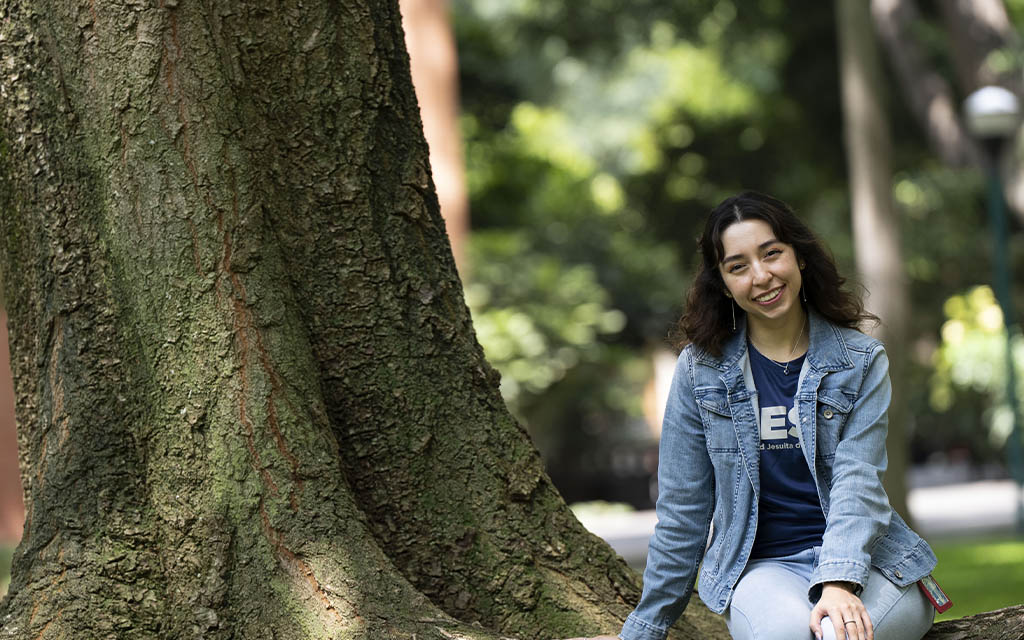WORKING IN INTERNATIONAL TEAMS
Detalle BN6
- Inicio
- WORKING IN INTERNATIONAL TEAMS

WORKING IN INTERNATIONAL TEAMS
Gissette Mendoza, an Industrial Engineering student, immersed herself in an international experience without leaving campus thanks to Global Curriculum courses. Learn more about her story and about how you can develop intercultural skills at ITESO University, too.
Published by Estéfany Franco | 9 Oct 2023 | Photo by Luis Ponciano
When Gissette Mendoza was in her secondsemester of industrial engineering, a professor told her that engineers never work alone but in international teams. This observation motivated her to look for opportunities to develop the skills that collaboration with others provides.
Now as a ninth semester student, she shares her experience having taken Global Curriculum courses, which offer ITESO students the opportunity to immerse themselves in a unique international and intercultural experience without having to leave their campus.
Gissette's interest in participating arose when she visited the Internationalization Office and came across a brochure promoting the Certificate of International and Intercultural Competencies (CCII). It was then that a friend explained to her that this certificate allowed students to develop professional skills while interacting with students and professors from foreign universities.
"You have a local ITESO professor and a professor from another university, plus you are taking the courses at ITESO, so you don't have to move or go abroad on a student exchange. I had classes with a professor from Colombia and with my Operations Research II professor Vilma", the student said when detailing her AUSJAL Virtual Intercampus experience. The Global Curriculum is comprised of a variety of subjects taught both face-to-face and virtually. This diversity of options allows students like Gisette to improve their intercultural and social skills, (soft skills), from the comfort of their academic environment.
The student emphasizes that she took subjects in two different modalities. On the one hand, she studied logistics systems and integral calculus, two courses taught under the English Medium Instruction (EMI) approach, which allows you to study curricular content entirely in the English language. On the other hand, she took courses such as Interculturality and Society and Environment which form part of the COIL (Collaborative Online International Learning) classes offered at ITESO.
Despite the challenges of dealing with different cultures and perspectives, Gissette emphasizes that the relationships formed through teamwork are valuable both on a personal and professional level: "I believe that we're made up of teams out there, we're always going to work as a team, and what better way than to work with people from other countries, from other cultures. That's a huge asset that ITESO provides you with and that you can acquire in just one semester," she emphasizes.
Gissette also highlights the importance of learning how to communicate and understand what is important in different cultural contexts: "My greatest learning experience has been spending time with other people, learning how to communicate, to say what matters here in Mexico, but also to listen and to understand what really matters in other countries. It's always good to connect with others and to learn how to dialogue," she says.
If you are interested in taking Global Curriculum courses or in getting to know more about how to participate in ITESO’s Certificate of International and Intercultural Competencies (CCII), please contact the Internationalization Office on campus (Building Q2).
students internationalization


